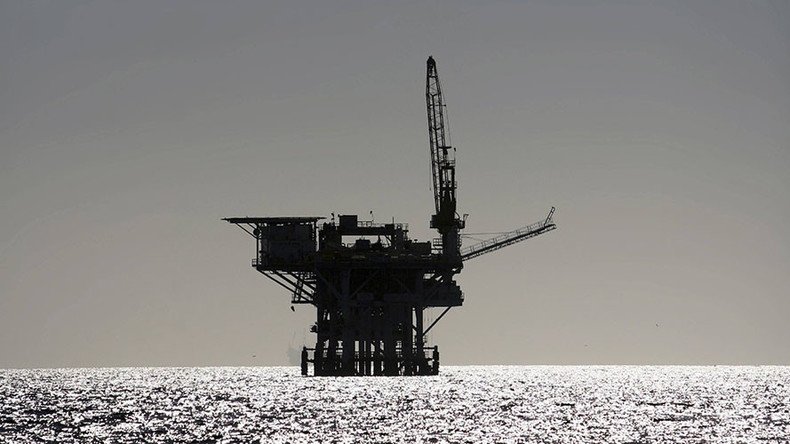California sues feds over claims offshore fracking had no environmental impact

Citing risks to public health and marine life, California’s state attorney and the state Coastal Commission are suing the federal government over its recent conclusions that off-shore fracking has had no environmental impact.
“We must take every possible step to protect our precious coastline and ocean,” said Attorney General Kamal Harris on Monday in a statement. “The US Department of Interior’s inadequate environmental assessment would open the door to practices like fracking that may pose a threat to the health and well-being of California communities.”
The suit comes after an oil company, DCOR LLC, proposed the establishment of California’s first offshore well in almost two years in the Santa Barbara Channel.
AG, Coastal Commission File Suit To Stop Fracking Off California Coastline | Davis Vanguard https://t.co/vVaRop19ETpic.twitter.com/Tgh1j0xCkG
— David Greenwald (@DavisVanguard) December 20, 2016
According to complaint records obtained by media outlet Truthdig under the Freedom of Information Act in 2013, well stimulating treatments, including fracking and acidizing were authorized by the defendants on several Pacific offshore oil platforms.
The discovery prompted two environmental organizations to file lawsuits challenging the use of fracking and acidizing off-shore without adequate environment review. A settlement was reached in January 2016 which required the defendants to development an environmental review under the National Environmental Protection Act, according to the complaint.
In May, the federal government agreed to allow offshore drilling in federal waters off California, after releasing an environmental assessment of the practice for 22 production platforms located on 43 active leases along 3.7 to 10.5 miles of the California coastline.
According to the California Coastal Commission the assessment failed to fully disclose the chemicals used by oil companies and their effects on marine life and water quality, citing information gaps, and the absence of sampling data.
The lawsuit challenges the government’s assessment, maintains the environmental review violated the requirements of the National Environmental Policy Act and the Coastal Zone Management Act, and demands a more extensive evaluation.
Leases for offshore development and the production of oil in California began being awarded in 1966, with the first offshore platform becoming operational in 1967.
In January 1969, the nation’s first large offshore oil spill occurred near Santa Barbara after a blow-out at the Dos Cuadra Offshore Oil Field, when during a 10-day period an estimated 80,000 to 100,000 barrels of crude oil spilled onto the beaches of Southern California. It had significant impact on marine life, killed thousands of birds and marine mammals such as dolphins, elephant seals and sea lions. It was ranked as the third largest spill in US history after the 2010 Deepwater Horizon and 1989 Exxon Valdez oil spills.
#Oklahoma residents sue energy companies over #fracking quakes https://t.co/pQC0V6nXCQpic.twitter.com/dMlmMHwOhe
— RT America (@RT_America) December 7, 2016
The lawsuit comes as the US shale industry falls under increasing scrutiny for its environmental and health impact. It has emerged that offshore fracking led to billions of gallons of wastewater to be dumped at sea.
The Center for Biological Diversity has released federal documents that show officials approved more than 1,200 offshore fracks in 630 different wells in four years from 2010 to 2014 in the Gulf of Mexico.
The documents show that fracking occurred off the coasts of Texas, Louisiana, Mississippi and Alabama with no public involvement, and with no site-specific tests undertaken beforehand. In just 2014, the oil and gas industry dumped 76 billion gallons of waste fluid into the sea.
“Every offshore frack increases the risk to wildlife and coastal communities, yet federal officials have been just rubber-stamping this toxic practice in the Gulf of Mexico for years,” Kristen Monsell, an attorney with the Center for Biological Diversity told EcoWatch.
Monsell said the federal government has studied the impact of the chemicals dumped directly into the ocean and “the impact of the chemicals…[on] critical habitat and fracking-endangered species.”
New ‘body of evidence’ unveils #fracking threats to public health & safety https://t.co/9UO0kv34YRpic.twitter.com/fJTwzlMMU1
— RT America (@RT_America) November 29, 2016
Curbing fracking is a big issue for other states where the industry is booming. State regulators in Oklahoma, in conjunction with the state’s Geological Survey, are proposing to new seismicity guidelines for two areas in the state that are likely to account for new oil and gas operations. Under the guidelines if an earthquake of at least a magnitude 3.0 is determined by the Geological Survey, an operator will pause operations for no less than six hours, and if it is at least a magnitude 3.5, the operator will suspend operations.
OGS director Jeremy Boak said his research showed some of the quakes in the state may have been related to hydraulic fracturing from the disposal wells sitting on fault lines, according to Tulsa World.
The regulation comes as residents of the small Oklahoma town of Pawnee has filed a class-action lawsuit demanding 27 fracking companies pay for the effects of a 5.8 magnitude earthquake. They claim the companies exercise “reckless disregard for public or private safety.”
The suit points to the natural gas extraction method of fracking, or hydraulic fracturing, which consists of injecting wastewater into the earth, as the cause for not only the major quake, but also 52 subsequent tremblors.
Plaintiffs claimed they suffered property damage, reduced property values and emotional distress from the earthquake.












